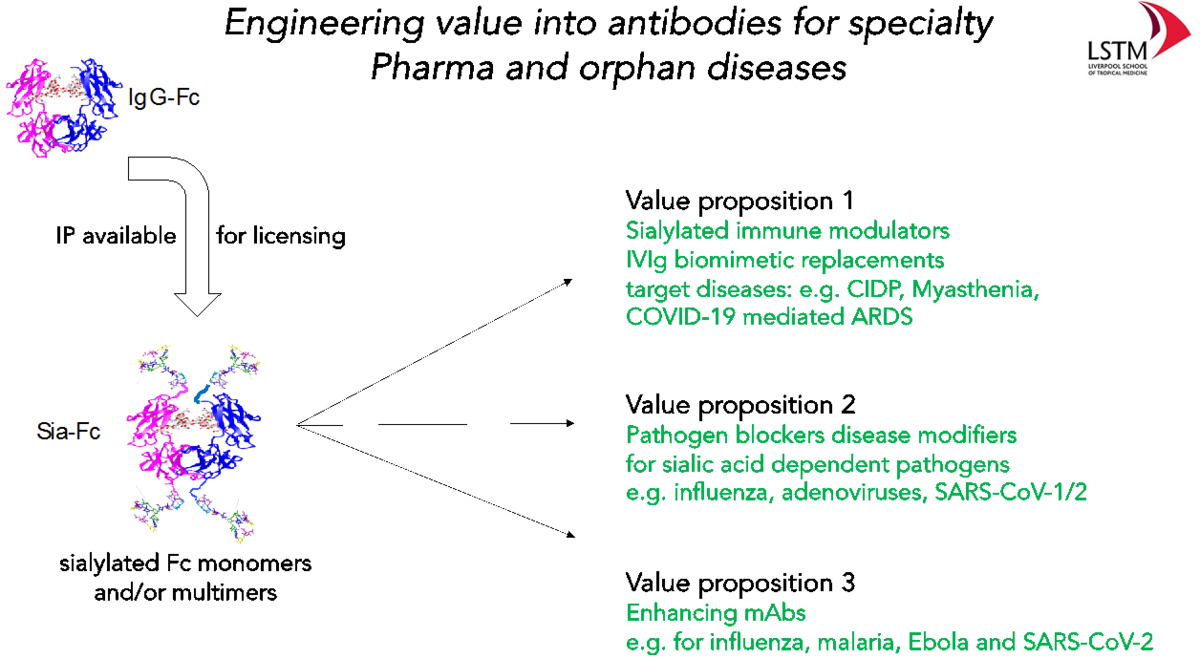Immunoglobulins, also called antibodies, are an important arm of the immune response helping to both eliminate pathogens and stop them causing disease.
While showing recent clinical promise there are considerable hurdles arising from the use of human plasma donors to treat COVID-19, in addition human plasma is costly and the requirements to screen for pathogens and the identification of donors with high neutralising anti-SARS-CoV-2 titres is time consuming.
LSTM’s Professor Richard Pleass, Dr Grant Hughes, Dr Ian Patterson and colleagues from the Centre for Snakebite Research and Interventions, are currently exploring the role of utilising larger domesticated animals to generate therapeutic antibodies to target COVID-19. Such antibodies may also be useful for diagnostic applications in in low- and low-middle income (LIC and LMICs) being investigated together with Dr Emily Adams and Dr Lance Turtle (UoL).
While human convalescent sera may not be readily available in outbreak situations, already licenced antisera of animal origin containing high titres of neutralising antibody can be produced in 2-4 months. The availability of animal antisera may be of benefit to those LIC and LMIC countries.
His laboratory together with Dr Alvaro Acosta-Serano’s are investigating the repurposing of glycosylated Fc-fragments (see Fig below) and/or viruses developed at LSTM for the control of COVID-19 mediated ARDS and cytokine storms. Together with colleagues at the University of Oxford (Dr Kirsty McHugh and Professor Simon Draper) they are also improving the efficacy of therapeutic monoclonal antibodies (mAbs) for COVID-19 and other emerging viral infections.




